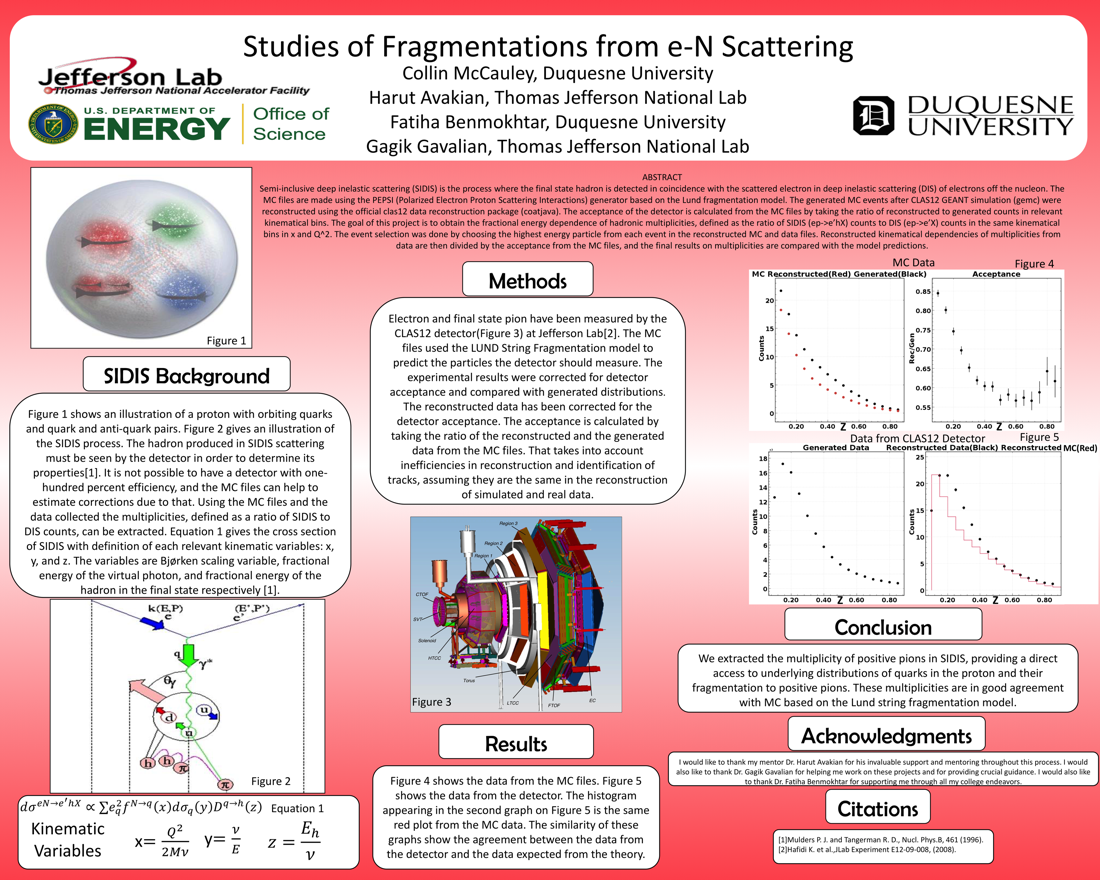Undergraduate Research at Jefferson Lab
Studies of Fragmentations from e-N Scattering
Student: Collin McCauley
School: Duquesne University
Mentored By: Harut Avakian
Databases can be used to hold the results from experiments, keep a record of the properties of materials in a system, and hold theoretical values in a convenient way. The database that required additional functionality was the Jefferson Lab Calibration Constants Database (CCDB) which is a framework to store and manage calibration constants for experiments in high energy and nuclear physics. Primary access to the constants sets is by run number. Constants sets themselves are organized in a tree of constant set types, customized for the experiment and of arbitrary depth. Alternate versions of constants are supported. The complete time history of the constant set tree is kept. Access to alternate versions and to older versions is supported via configuration of the access routines. Functionality always needs to be added to improve the database, this functionality can range anywhere from making sure too much space is not being taken up to facilitating data collection. Functionality always needs to be added to improve the database, this functionality can range anywhere from making sure too much space is not being taken up to facilitating data collection. The first functionality to add was a program that gets every table in the database that has been updated in the last week and sends an email to the scientist in charge of the directory that the table came from. There were two main functions added to CCDB one was a notification service, alerting members of the calibration team that a table in one of their responsible directories had been updated or created in the last twenty-four hours. The second is an Integrity Maintenance project that will allow users to select a table by name and compare values in the table to them in previous versions of the table.

Citation and linking information
For questions about this page, please contact Education Web Administrator.
